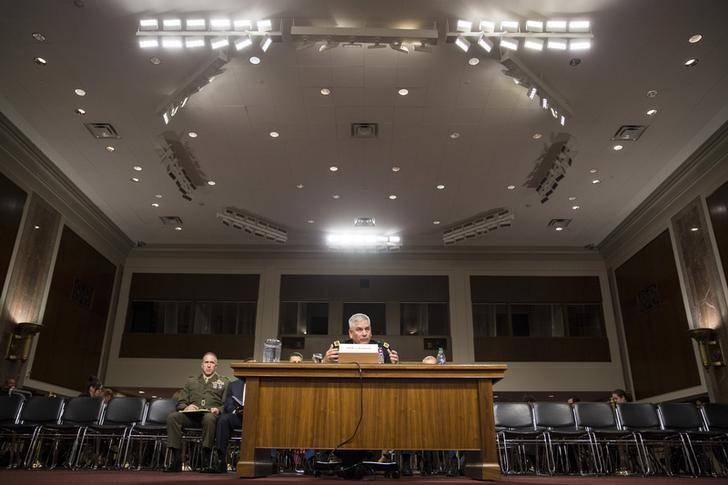WASHINGTON: The U.S. military took responsibility on Tuesday for a deadly air strike on a hospital in the Afghan city of Kunduz, calling it a mistake and vowing to hold people accountable.
Saturday's strike on an Afghan hospital run by Doctors Without Borders, or Medecins Sans Frontieres (MSF), killed 22 people and deeply angered the medical charity. MSF officials have blamed the United States, demanding an independent investigation into an attack it called a war crime.
Defence Secretary Ash Carter said the Pentagon "deeply regrets" the loss of life. "The U.S. military takes the greatest care in our operations to prevent the loss of innocent life, and when we make mistakes, we own up to them. That's exactly what we're doing right now," Carter, who was travelling in Europe, said in a statement.
"We will do everything we can to understand this tragic incident, learn from it, and hold people accountable as necessary," he said.
Earlier in Washington, the American commander of international forces in Afghanistan, Army General John Campbell, called the strike a mistake made within the U.S. chain of command.
The comments by Carter and Campbell were the most direct acknowledgement yet by the U.S. government that the strike on the hospital was carried out by U.S. forces. On Monday, Campbell said only that U.S. forces had responded to a request for support from Afghan forces.
In testmimony to the Senate Armed Services Committee, Campbell also made clear he favoured a rethink of a plan to withdraw almost all U.S. troops by the end of next year. He said rising threats in Afghanistan from the Islamic State and al Qaeda were among factors informing his recommendations to the White House on future troop levels.
Campbell said U.S. forces had responded to a request from Afghan forces and provided close air support as they engaged in a fight with Taliban militants in Kunduz, a provincial capital that the Taliban captured late last month.
"To be clear, the decision to provide aerial fires was a U.S. decision made within the U.S. chain of command," Campbell said. He added that U.S. special forces nearby were communicating with the aircraft that delivered the strikes.
"A hospital was mistakenly struck," Campbell said. "We would never intentionally target a protected medical facility."
President Barack Obama expected steps to be taken to prevent such an incident from recurring, White House spokesman Josh Earnest said on Tuesday.
The government of President Ashraf Ghani, heavily dependent on Washington for military support and far less critical of the United States than his predecessor Hamid Karzai, has held back from directly criticizing the United States.
But an Afghan military officer took issue with the idea that Afghan forces had called for a strike against the hospital.
Abdullah Guard, commander of Afghan special forces in Kunduz, said his men had been under heavy fire in the area near the hospital, fighting a Taliban force estimated at around 500 men.






